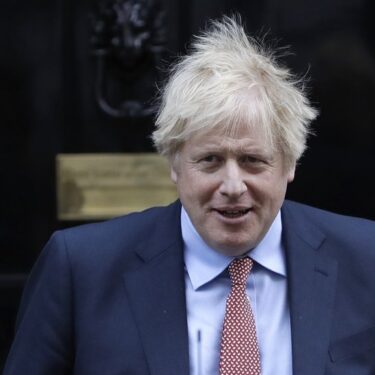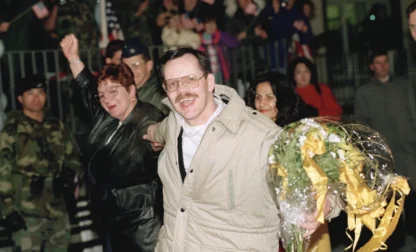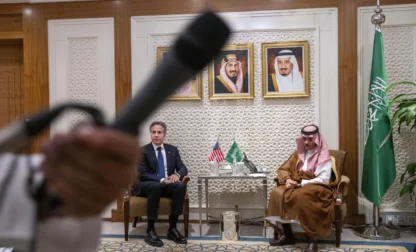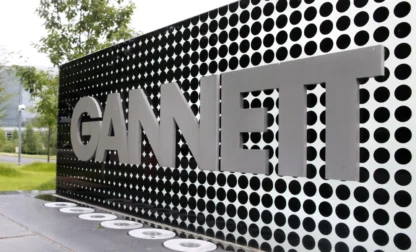By GREGORY KATZ and DAVID BAUDER, The Associated Press

LONDON (AP) — Some prominent British and international media organizations pushed back Friday against Prime Minister Boris Johnson’s handling of a prerecorded video message to mark Britain’s departure from the European Union.
The Associated Press and several other major news outlets declined to air the government-provided video, which was recorded the previous day at Johnson’s official residence, 10 Downing Street. Johnson’s press team broke with usual procedures by refusing to allow independent media outlets to film or photograph the statement.
The BBC and commercial rival ITN declined to air any video of the address. Sky News and other organizations ran short clips. News agencies including Reuters and AFP also decided against using the footage.
Johnson did not answer reporters’ questions about Brexit during two events Friday as Britain neared its 11 p.m. split from the EU after more than three years of painstaking negotiations with EU leaders and a prolonged political stalemate in Parliament.
His office planned to make the video available on the prime minister’s official Facebook page and distributed it via email to news outlets.
AP spokeswoman Lauren Easton said “an essential role of a free press in a democracy is to have access to and question public officials and hold them to account.”
“When access to those officials is restricted, so is the public’s fundamental right to know about what is happening inside their government. Government handout video and photos, by their very nature, restrict the access of independent news organizations,” she said.
Decisions by politicians to eliminate the media from the process, often facilitated by the broad appeal of social media, are becoming more common.
Tom Rosenstiel, executive director of the American Press Institute in Washington, cited a trend of people in power, particularly those with authoritarian tendencies, seeking to bypass the press to speak directly to their audiences.
“Increasingly you are speaking to audiences that already like you,” Rosenstiel said. “The people who don’t like Boris Johnson are not going to watch the Facebook video.”
In the U.S., President Donald Trump tweets out his thoughts on a daily basis and frequently speaks to reporters at White House events. Those encounters vary in length, and he avoids formal news conferences.
A briefing by the White House press secretary, a question-and-answer session held on an almost daily basis by earlier administrations, has not happened in nearly a year.
In Europe, journalists were excluded from a major ceremonial event last Friday. No media organizations were present when the chiefs of two of the European Union’s main institutions signed the Brexit divorce agreement.
Instead, European Council President Charles Michel tweeted photos of the overnight signing with the president of the EU’s executive commission, Ursula von der Leyen, witnessed by Brexit negotiator Michel Barnier.
The EU rejected repeated media requests for access to the signing.
___
Bauder reported from New York.




